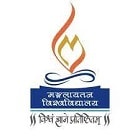Fees Details
₹ 38.00 K
$ 1.17 K
Course Details
The MA in Journalism and Mass Communication at Mangalayatan University, Aligarh is a two-year master's degree programme. The programme is divided into four semesters, offering a variety of specialisations. The online MA in Journalism and Mass Communication at Mangalayatan University, Aligarh aims to equip students with the techniques involved in mass communication and media, such as news reporting, broadcasting, digital media, and more.
Programme Offerings
- UGC-Approved Online Degree
- online programme
- Flexible learning
- Hands-on Experience
- Recorded lectures
- Online Learning Management System
- Career-oriented curriculum
- placement assistance
Eligibility Criteria
Candidates interested in the online MA Journalism and Mass Communication at Mangalayatan University, Aligarh must satisfy certain eligibility requirements to register for the course. The eligibility criteria for the online MA Journalism and Mass Communication programme at Mangalayatan University are as follows:
Candidates must have completed their higher secondary education (10+2) and bachelor’s degree from a recognised university.
Candidates must have an aggregate score of a minimum of 45% in their bachelor’s degree education.
Admission Details
Students who fulfil the eligibility criteria for the online MA Journalism and Mass Communication at Mangalayatan University can apply for the course. The admission process for the online MA Journalism and Mass Communication programme involves registration on the University's website, completion of the online application form, and payment of the registration fee. Once the application form has been submitted, shortlisted applicants will be contacted by the university.
Application Details
To apply for the online MA in Journalism and Mass Communication at Mangalayatan University, students need to follow the steps:
Visit the official website of Mangalayatan Online University - https://www.muonline.ac.in/
Go to the online MA Journalism and Mass Communication course page
Meet the eligibility criteria for the online MA Journalism and Mass Communication programme
Fill in the registration form with their contact details and chosen course, then click on ‘Register Now’. This will take them to an online registration page.
They should register using their email address and create a strong password.
After registering, they need to fill in the necessary information.
They should pay the registration fees and upload their documents.
If prospective students are shortlisted, they will be asked to pay the full semester or course fee. The university will give them a roll number. They will also need to register for Mangalayatan University, Aligarh’s online learning management system.
The Syllabus
The online MA Journalism and Mass Communication syllabus at Mangalayatan University has been structured over four semesters. The course comprises five courses in each semester, with dissertation and viva project in the final semester. The detailed Mangalayatan University Online MA Journalism and Mass Communication syllabus is as follows:
Principles of Mass Communication
Development of Mass Media
Print Media: Reporting and Editing
Advertising and Public Relations
Basics of photography
New Media
Development Communication
Media Writing
Media Laws and Ethics
International Communication
Electronic Media Production
Media Management and Practices
Communication Research
Corporate communication
Film Studies
Human rights and Media
Media and Society
Specialised reporting
Dissertation
Comprehensive Viva-voce
Evaluation Process
Students of the Mangalayatan University online MA Journalism and Mass Communication programme will need to take an online exam set by the university. Before each semester's exams, students must pay the exam registration fee. The university provides a set window for the examination date, during which students can schedule their examinations, allowing flexibility.
Students will need a laptop or personal computer with a stable internet connection for the exam. To help students prepare for the exam, mock tests will be available on the online MA Journalism and Mass Communication course learning management system.
Mangalayatan University Online Frequently Asked Questions (FAQ's)
Candidates who want to apply for the online MA Journalism and Mass Communication programme must have completed their 10+2 education and bachelor’s degree, with a score of 45% in the latter.
The duration of the course spans two years, with four semesters.
The career prospects of the course include jobs in the fields of journalism, mass communication, media, and more.
Yes, participants can interact with the faculty directly.
